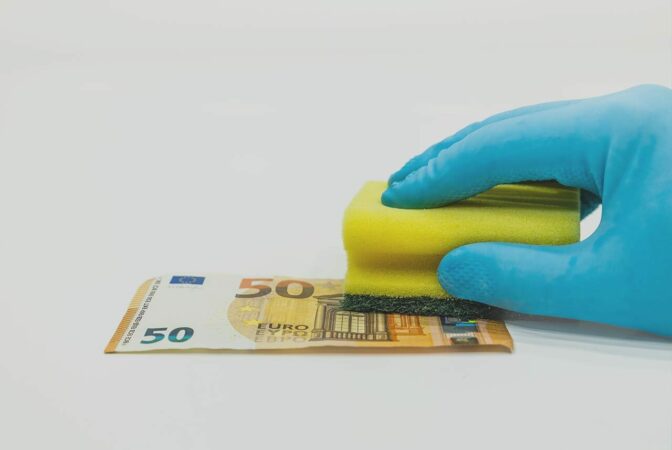Mr D was linked to a gang which swindled millions from unsuspecting victims’ web bank accounts before laundering the dirty money through other accounts.
It was alleged Mr D, a Bangladeshi immigrant found with a Portuguese passport, opened two bank accounts to clean cash from the fraud.
He appeared in court along with eight others charged with conspiracy to defraud, conspiracy to launder money, and possessing fake ID with improper intention.
The gang preyed upon internet banking loopholes to convince account holders that they were making genuine payments to authentic companies, prosecutors claimed.
The complex fraud also saw people’s email accounts cloned and their computers hit by viruses capable of extracting sensitive log-in data.
A Stuart Miller Solicitors spokesman explained: “The process enabled the defendants to identify email exchanges about a forthcoming transaction, such as a house purchase.
“Once an impending transaction had been identified, the fraudsters emailed the ‘paying party’ a fraudulent invoice bearing payment instructions to a bogus account.
“In order to prevent the legitimate email account holder learning of the fraud, the email was usually sent from a clone email account mimicking the real email account.”
To prove their case, the prosecution served over 300,000 pages of evidence, which included bank statements, phone records, emails and text communications.
Stuart Miller Solicitors methodically and forensically reviewed all of the evidence to properly defend the case.
The spokesman said: “On the face of it the case against Mr D was overwhelming. However, our fraud solicitors believed in Mr D’s innocence and set out to prove it.
“With experience, determination and having mastered the art of winning, we set out to define a strategy that would secure justice for Mr D.
“If found guilty, Mr D would have served a significant time in prison, deprived of any assets, been deported to his Bangladesh and separated from his wife and newly-born child. It was a case we simply had to win.”
Mr D insisted that he was not aware of the scam, or that his accounts were being used to launder dirty money.
He accepted that he allowed his Barclays Bank account to be used by a co-defendant as a favour because he did not have one of his own.
Stuart Miller Solicitors argued that that Mr D had no idea the account would be used for fraud – if indeed it was.
Mr D’s team also displayed how Mr D did not meet, have contact with, nor know of any parties in the alleged conspiracy. He was working 12-hour shifts, sometimes seven days a week.
Not only was the money laundering charge a serious threat to Mr D’s liberty, the alleged false passport was capable of “catastrophic consequences” in itself.
Stuart Miller Solicitors argued that the ID was a genuine passport obtained in Portugal through submission of the defendant’s genuine Indian birth certificate.
A spokesman said: “During the preparation of Mr D’s case we knew that the false identity charge may sway the jury to disbelieve our client in reaction to the more serious charges of conspiracy to launder and defraud. We considered it damning circumstantial evidence.
“We were also concerned that a finding of guilt on the false identity charge would have had huge implications for our client. Mr D would have been deported to Bangladesh and separated from his wife and young child. The consequences were catastrophic.”
Stuart Miller Solicitors successfully proceeded to get the fake ID charge removed from the case on the basis that it was not relevant to the money laundering case as a whole.
Mr D was the only one of the eight defendants to be acquitted after an eight week trial.
Crucial to the acquittal was highlighting how Mr D’s ‘no comment’ interview to police was a result of learning disabilities and an existing psychological condition.
Stuart Miller Solicitors also worked to stop prosecutors putting fresh banking material before jurors.
It was excluded from the trial as a judge agreed it had been disclosed too late.




